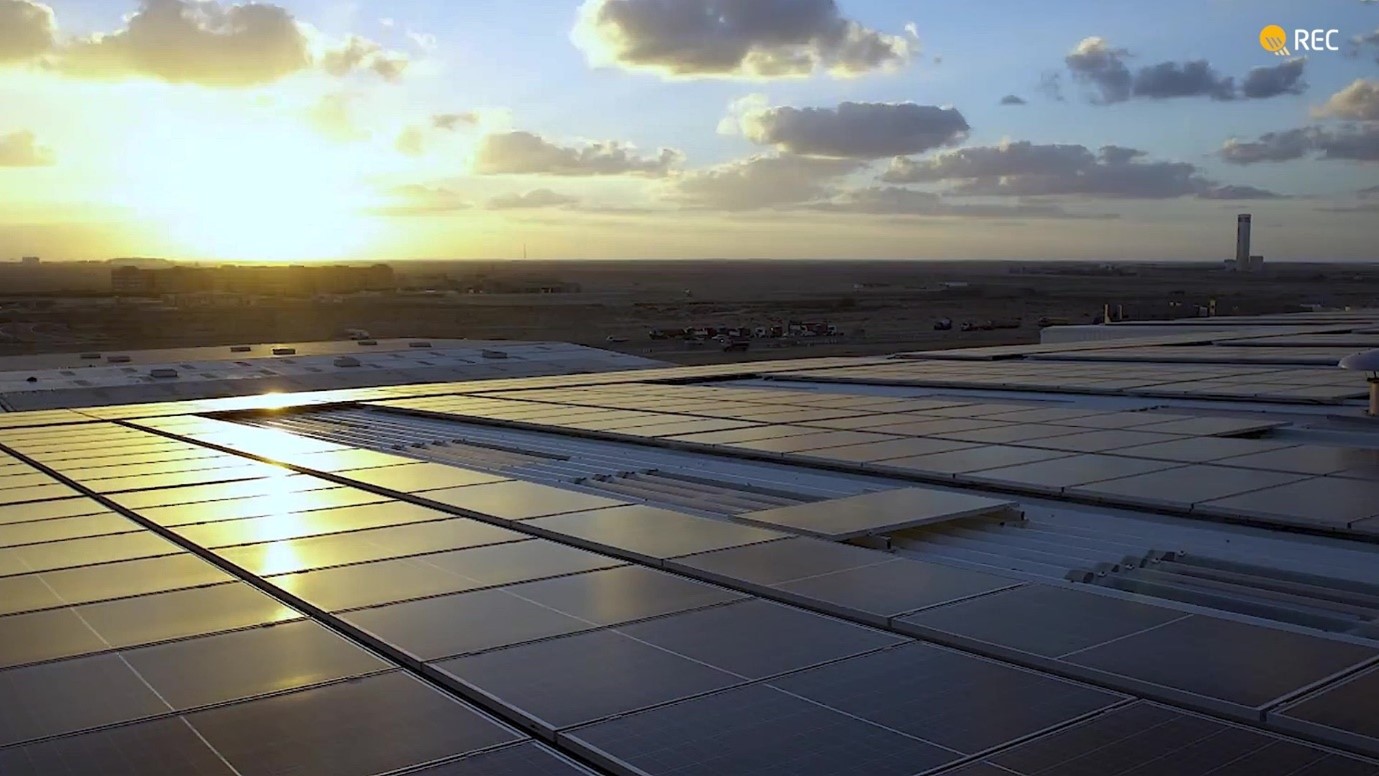Mastering HJT – Solar technology of the future, already today at REC
Mastering REC's heterojunction solar cell technology (HJT)
The heterojunction solar cell technology (HJT) has revolutionized the way we think about solar energy. Unlike TOPCon, which uses a single material for its solar cells, HJT cells are made from two different materials, crystalline silicon and amorphous silicon thin-film, combining the best of two worlds. This creates a sort of "sandwich" effect, where the two materials are layered on top of each other. The combination of materials allows for more efficient capture of sun light and transfer of electrons in general, resulting in a higher energy conversion rate potential and better outcome for homeowners and businesses.
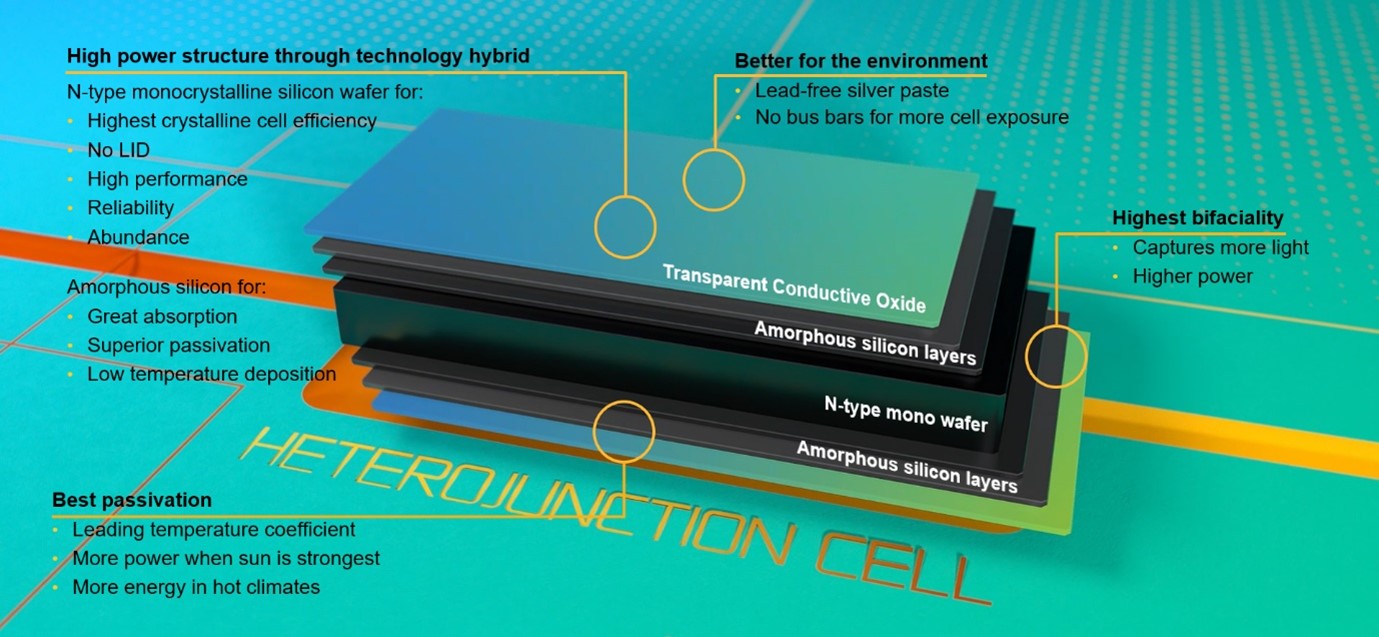
While the majority of solar panel manufacturers moves to TOPCon as a quick and simple successor of PERC to offer some incremental efficiency gains, HJT is considered as a real pioneering technology, presenting the biggest potential for efficiency leaps in the near future. In fact, all recently achieved world records for cell efficiency in the lab are based on HJT. We at REC believe that HJT holds immense potential for efficiency growth and is also the best option for future developments like tandem structures.
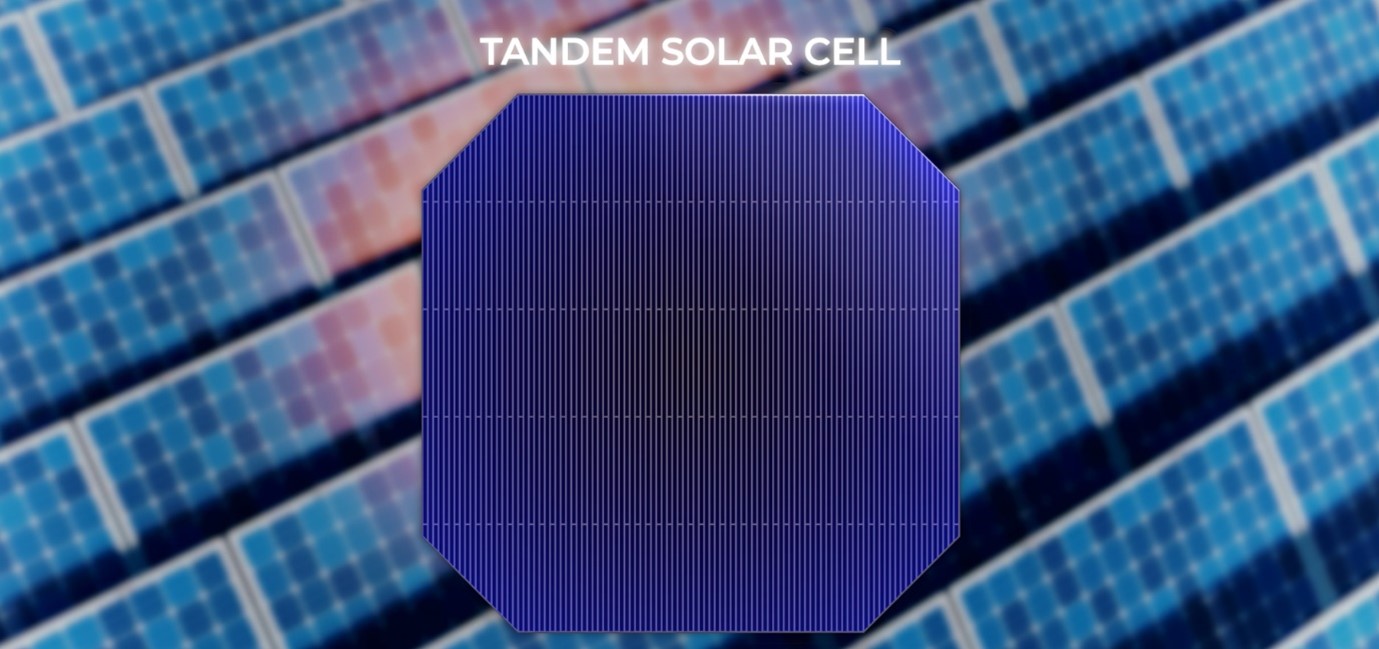
Looking at TOPCon solar panels today on the market and their performance warranties, the majority of them comes with a degradation of 0.4% per year, offering 89.X% power at year 25. REC’s Alpha HJT products guarantee at least 92% power output at year 25.[1] This is a clear testament to the long-term performance of Alpha HJT, giving consumers and installers a greater peace of mind.
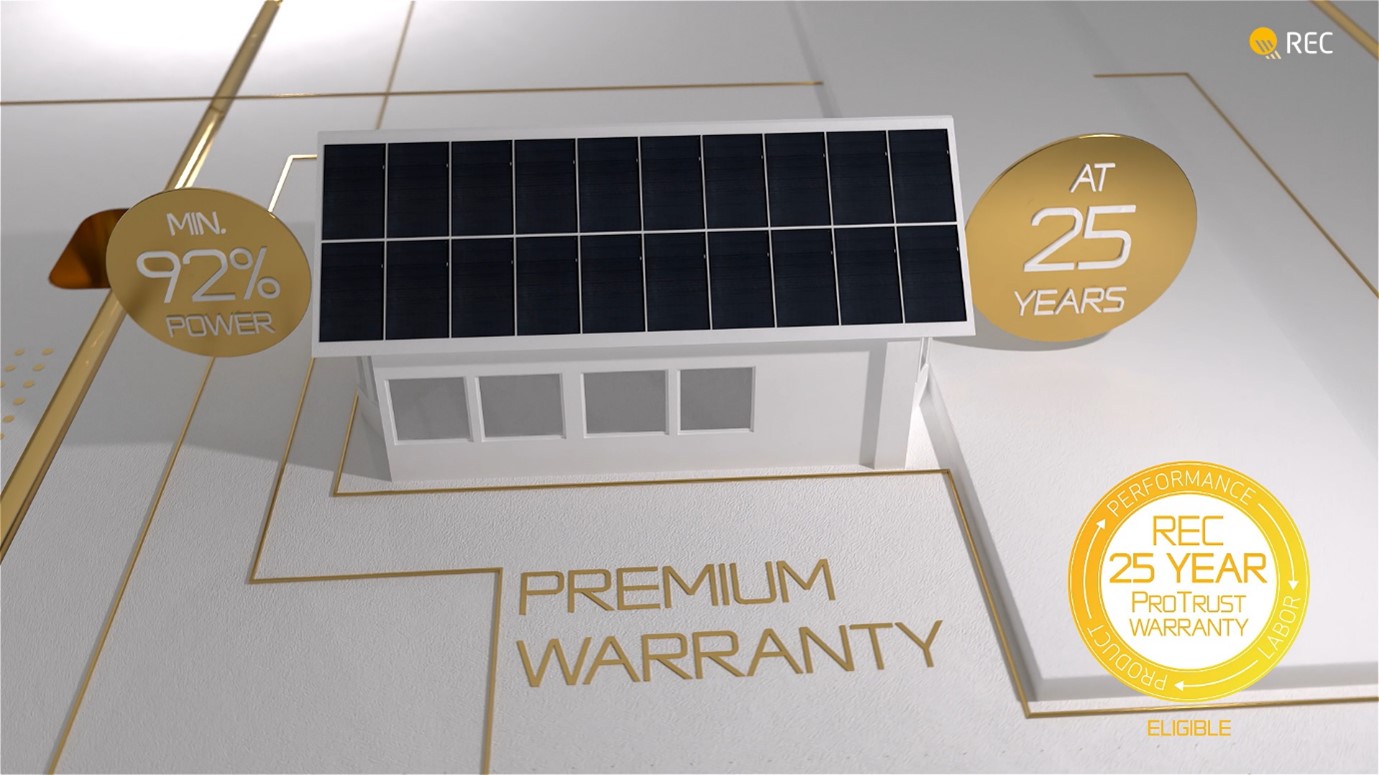
[1] Under the comprehensive REC ProTrust warranty, subject to conditions.
Another benefit of HJT is its ability to reduce heat loss during energy production. The materials used in the construction of these cells are specifically chosen to minimize thermal conductivity. This means that they are able to retain more energy during the energy conversion process, which leads to a higher overall energy output, even under hot climate conditions thanks to a low temperature coefficient.
Factually, HJT is considered superior because it uses engineering principles to maximize power production and minimize energy consumption. The manufacturing of HJT cells requires significantly less steps (6 compared to 11-14 steps for TOPCon) and is possible through a low temperature process, reducing significantly energy consumption and better protecting our environment.
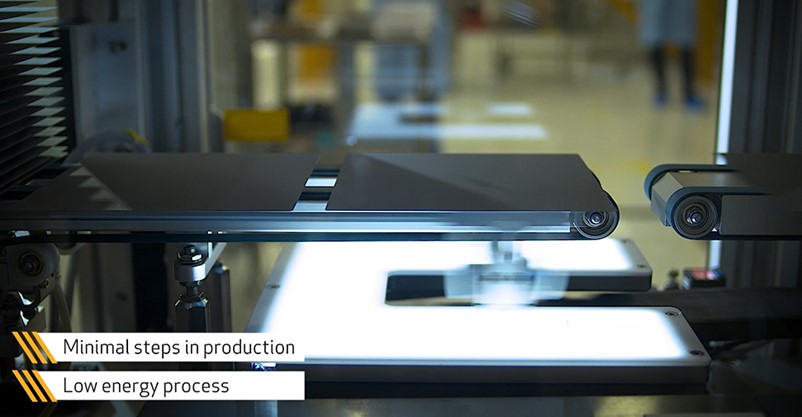
When it comes to solar cell technologies, for REC as an innovator with more than 25 years of solar experience, HJT cells are the clear winner, offering superior performance and reliability to end-users. HJT is a true pioneering technology and the basis for the best solar products of the future. Most manufacturers will likely head that route at some point. REC is already there and continuing to innovate on this platform, enabling more people to enjoy more clean solar power.
With its Alpha revolution since 2019, REC has continuously mastered HJT technology, increasing panel performance while minimizing environmental footprint. With the launch of its first HJT product, the REC Alpha Series, the pioneering manufacturer brought the most powerful 60-cell solar module to the global market, reaching 380 Wp. In 2021, REC launched its lead-free and RoHS compliant Alpha Pure Series, with power reaching 410 Wp in a compact format. The combination of high-power density and lower impact on the environment convinced the international jury to honour the REC Alpha and the Alpha Pure with the prestigious 2020 and 2022 Intersolar Awards.
In 2022, REC launched a new world’s highest-power solar panel for residential installations with G12 HJT cells, the REC Alpha Pure-R Series. With up to 430 Wp packed into less than two square meters, the new REC Alpha Pure-R hits the sweet spot in terms of power output, size, weight, and handling.
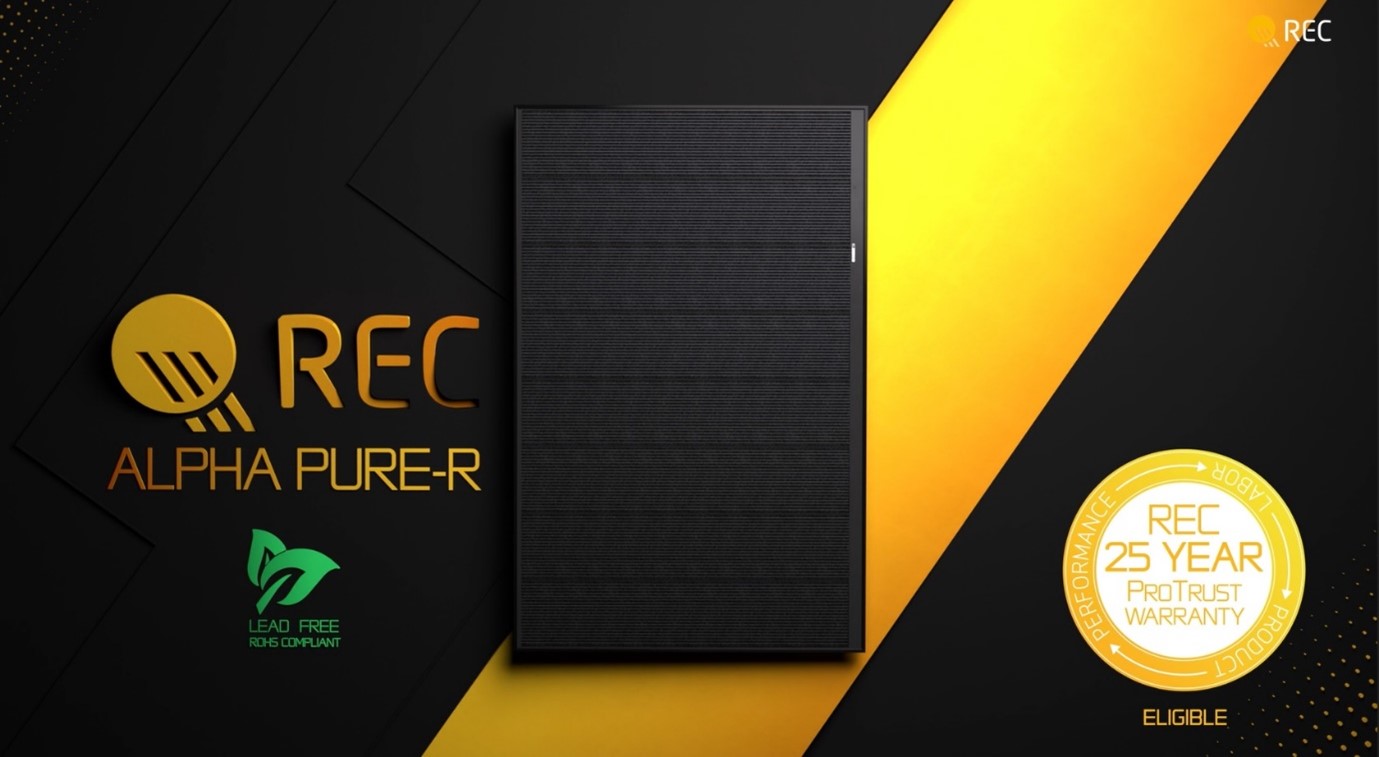
Introducing Advanced Module Interconnection (AMI) !
A crucial enabler to overcome the challenge for combining large G12 wafers with REC's Alpha HJT technology is AMI – Advanced Module Interconnection. The innovative solder-free foil wire combination is enabling REC to even further master the advanced HJT technology and to achieve higher throughputs.
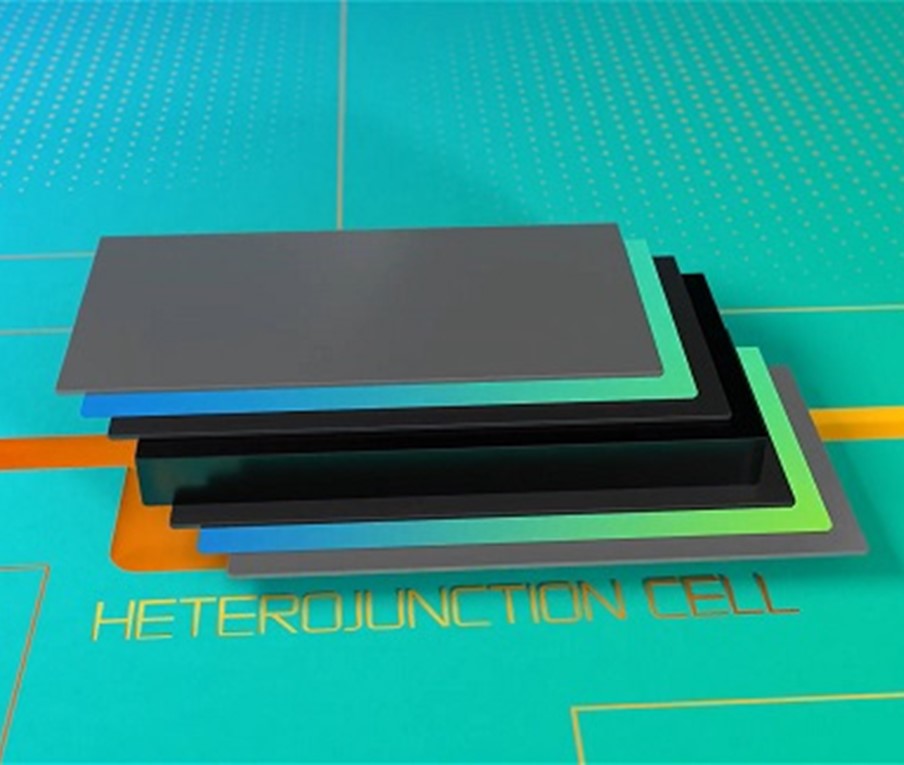
As the solar industry races towards larger wafers for higher efficiencies, it faces challenges to switch to G12 large wafers and cells on HJT. AMI is allowing REC to overcome these as this interconnection technology has been incorporated into the REC Alpha Pure-R Series for the first time.
In addition, the innovative foil wire combination, allows a higher resistance against micro-cracks compared to busbar connections, ensuring a more reliable high performance for the long-term. Going for solder-free connections, allows REC to offer a lead-free and RoHS compliant solar product.
